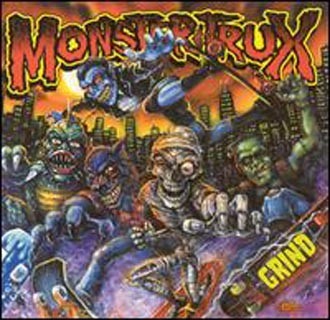Art in Heartache #3 "You Don't Know What Love Is"
From
But Beautiful by Jimmy Scott (CD, Milestone)
Three years or so ago, I spent a very late night listening to Billie Holiday sing this song: "You don't know what love is ... until you've faced each dawn with sleepless eyes," she accused; I was too drunk to make it to sunrise, but I knew what she meant.
Now Jimmy Scott has recorded the tune. "Little Jimmy," as they used to call him, has one of the world's eeriest voices, thanks to a hormonal condition that kept him from ever experiencing puberty. As he approaches his 80s, the small man sounds like a woman drawing from a deep well of sorrow. He utters each phrase reluctantly, as if the words cost him dearly, and the aura of his voice transcends generic labels such as jazz or R&B. (The only time I've ever heard a musical setting that matched his mood was during Scott's cryptic appearance in
Twin Peaks' final episode.)
Here, the familiar discrepancy between singer and band resonates with the song's message. While the combo lays down amiable, workmanlike chords, he writhes above and against them — as if to say, "No, listen to me, you don't know." Little Jimmy has known for a long time, and his testimony can break your heart.
— John DeFore
| |
|
| |
Art in Heartache #4
"I Am Trying to Break Your heart"
From Yankee Hotel Foxtrot by Wilco (CD, Nonesuch) On Wilco's most recent Best Album They've Ever Made (one-upsmanship has become a way of life for them), the group experiments with sounds not often employed on mainstream pop discs. It is especially appropriate on this tune, a stubbly, shambling thing that seems to feature a musical table saw, and ends uncertainly with a long electric whine. The drunken combination of sounds echoes the singer's confused lyrics, which wander between free-verse poetry and an attempt to make sense of unresolved feelings for a woman.
"What was I thinking when I let go of you?" he moans, but just as he seems fully in let's-stay-together mode, he changes the second half of that phrase to "when we said hello" and then "when I let you back in." Naturally, the first part of the phrase is rhymed at some point with "I've been drinking" — and that rhyme-indicted culprit lingers through the song. Why does booze lead us to question decisions that make sense in the clear light of day? Does it get us more in touch with our real feelings, or does the depressant just make us want to cause ourselves grief? Maybe the narrator's perversity is explained away by the song's mysteriously vengeful title — or perhaps he's trying to break his own, and doing a fine, albeit sloppy, job of it.
— John DeFore
| |
|
| |
MONSTER TRUX
Grind
(CD, Underground, Inc.)
If you think this Chicago punk band got its name from all those hellraisin' monster truck rallies that annually demolish arenas, then you've never shredded a mini-mall parking lot or empty swimming pool with a scuffed-up skateboard. On Grind, their second full-length album, Monster Trux merges the moniker irrevocably linked to classic horror movies with the term used to describe the axles that hold the wheels on a skateboard, and combines the colorful schlock aesthetic of the Misfits with the aggressive, energetic skate punk of Agent Orange and T.S.O.L.
With names like Monster Matt (lead vocals), 7 Goolie (guitar), and Jonny Aggro (guitar), you'd think Trux would bust out more of those horror references and background harmonies often associated with B-movie-inspired punk bands. But it turns out that "Svengoolie" and "Monster Show" are the only tracks that come close to matching these expectations.
One look at the rest of the song titles and lyrics also reveals that Trux is actually a bunch of skaters who happen to play in a band, instead of the other way around. Seemingly more caught up with Tony Hawk, "525's," and a slew of other skating references, Trux rests their punk laurels on skate paeans such as "Frankie Goes to Olliewood" and "Speed Wheels." The band does try to make things interesting by throwing in some old-school metal riffs and tempo changes in the songs "Future Primitive" and "Independent," which end up sapping most of the punk energy that Trux had generated in the beginning of Grind.
Ironically, those same metal touches give the album a novel yet absurd quality — subjecting listeners to an unsettling dose of skater lyrics doused with heavy metal guitars, and causing them to wonder which musical/artistic direction Monster Trux really favors. But, if you listen closely to the lyrics in "Shut Up and Skate," one thing is certain: "You gotta skate if you wanna relate."
— Albert A. Lopez



